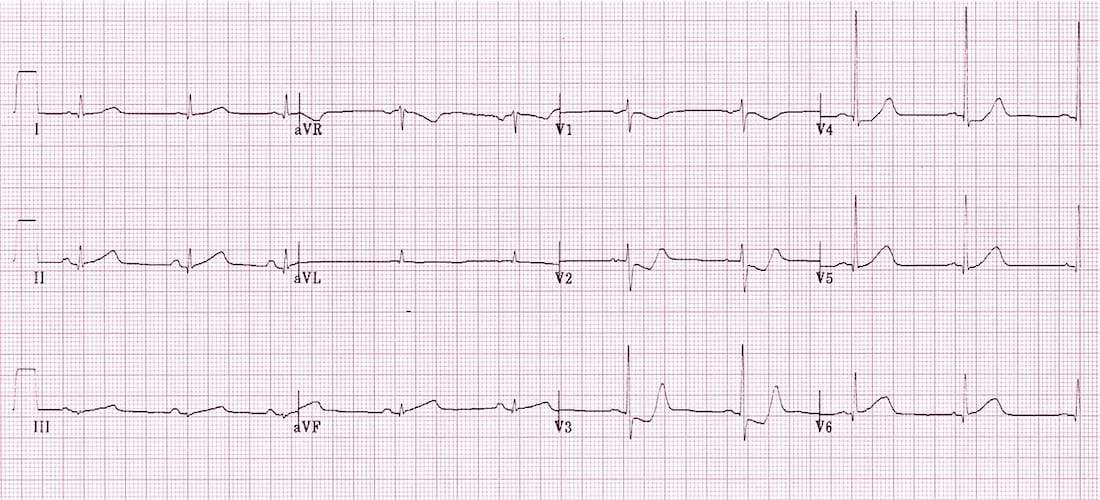What is the correct dose of Epi 1:10,000 for Cardiac Arrest
1MG
This rhythm goes about with no pattern, some would even say chaotic.

V-Fib
Penetrating injuries proximal to elbow and knee, two or more proximal long bone fractures, open or depressed skull fractures, and paralysis are examples of injuries requiring transport to which type of hospital?
Level 1 Trauma Center
This maneuver is used initially to open a patient's airway prior to intervention in the apneic patient.
The Head tilt-Chin lift
When this number of units are out on calls, the remaining units are to report to staging per LCEMS guidelines.
3
Given only in a drip over 10 minutes, this medication effects the clotting cascade and can assist in treating the hypovolemic patient, although we need to see that hypotension or tachycardia!
Tranexamic Acid (TXA)
Which chronic Cardiac Rhythm is referred to as "Irregularly Irregular" that can also increase the chances of stroke and heart attack?
Atrial Fibrillation
In 2018 36,560 deaths were caused by this type of traumatic accident in the United States. These types of accidents have been trending downwards since the early 2000's but still remain a leading cause of injury in the U.S.
Motor Vehicle Collisions
This type of BVM technique is noted as the best way to maintain an adequate seal with only one rescuer giving breaths with BVM and airway adjunct.
"C and E" Technique
How much time is suggested to remain on scene, at maximum, for calls such as stroke, STEMI, severe traumas?
10 minutes
This medication can be considered for COPD/Asthma patients, though we may not see the effects immediately due to long onset of action.
Solu-Medrol
On a 12-lead, in conjunction with symptoms this measurement of ST-Segment elevation in two contiguous leads suggests possible MI.
1 MM
With our geographical location, this type of request for traumatic injury assistance may not be needed, unless a patient is "trapped" for at least 20 minutes.
Air Transport (Vidant Air)
When intubating a patient that has fluid in the lungs this device can help better ventilate against that extra pressure.
Peep Valve
This individual is considered Incident Command on the scene of a MVC or Structure fire and EMS operations should be coordinated with same.
Fire Command
This medication can be used for an overdose of medication such as amitriptyline when we see ecg changes, as well as sever cases of hyperkalemia.
Sodium Bicarbonate
This type of rhythm has been shown to not be affected by Atropine, and pacing the patient may be needed early on if symptomatic.
High Degree Heart Block (2nd degree type 1 or 2, 3rd degree heart block)
During your secondary assessment you note blood coming from the ear canal of a head injury patient that looks to be thin. What type of test should be performed with this blood specifically?
"Halo" test (Cerebrospinal Spinal Fluid Test)
This medication with its specific dosage and route for this situation, can be used in hopes to prevent the need for RSI in a hypoxic and combative patient.
Ketamine 300-400 mg IM
The "Hey you it's me" phrase of ordering speech is used when individuals are using what type of communication?
Radio Communication
With a dosage of 40 mg/kg for pediatrics, this "relaxing" medication can be used if breathing is concerning.
Magnesium Sulfate
Although not definitive without doing some extra work, name the most accurate diagnosis for this 12-Lead assuming patient is symptomatic with cardiac symptoms. 
Posterior MI
Define the following pneumonic: DCAP-BTLS
Deformity, Contusion, Abrasions, Puncture, Burns, Tenderness, Lacerations, and Swelling
Which adventitious lung sound might be heard in a patient with respiratory distress when the "heart" of the problem doesn't start in the lungs?
Rales or Crackles
You are working on a Paramedic and Basic/Intermediate unit, and your patient's airway is deteriorating rapidly. What operational moved would you consider early on during this call?
Calling for secondary unit/ supervisor for second Paramedic for RSI